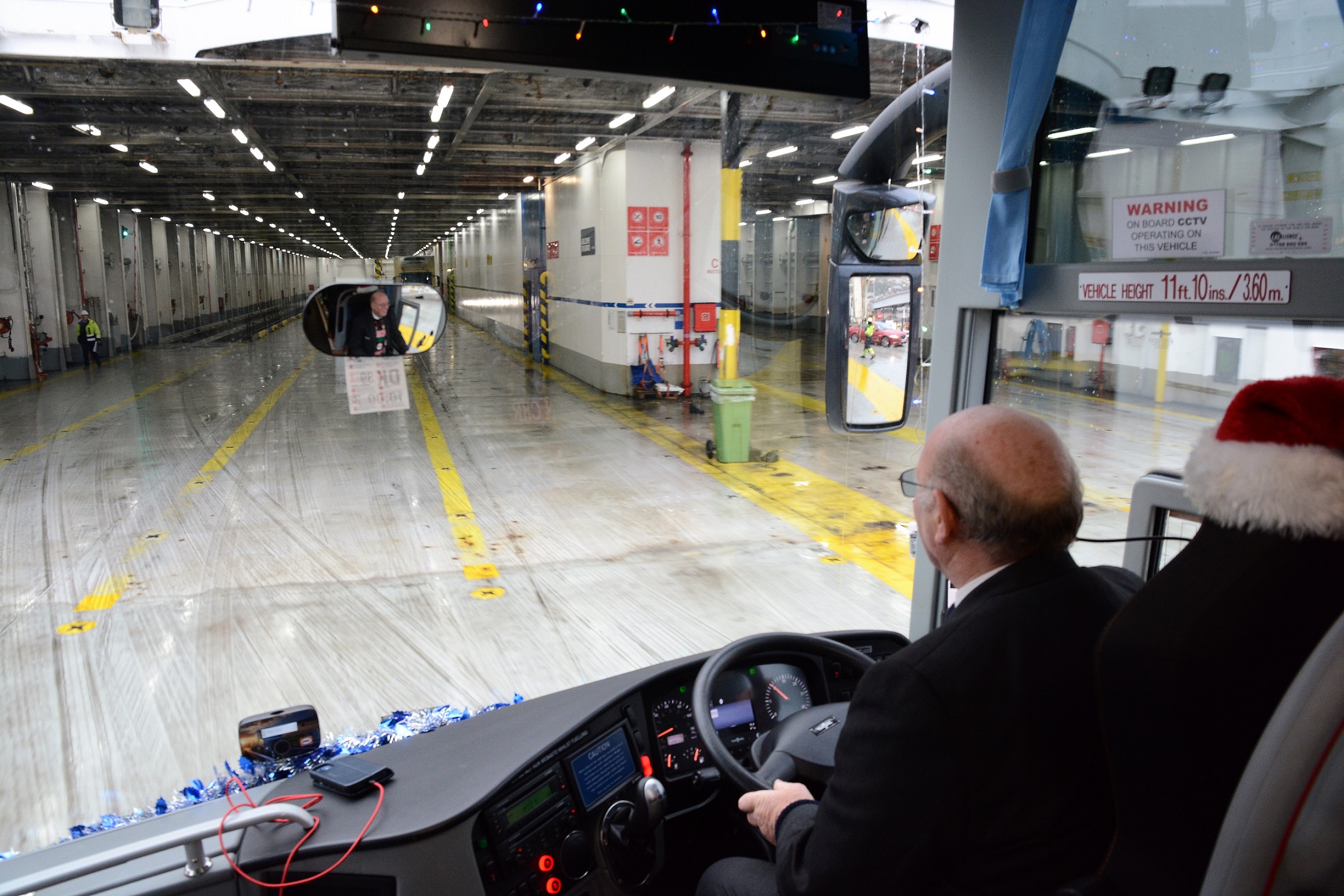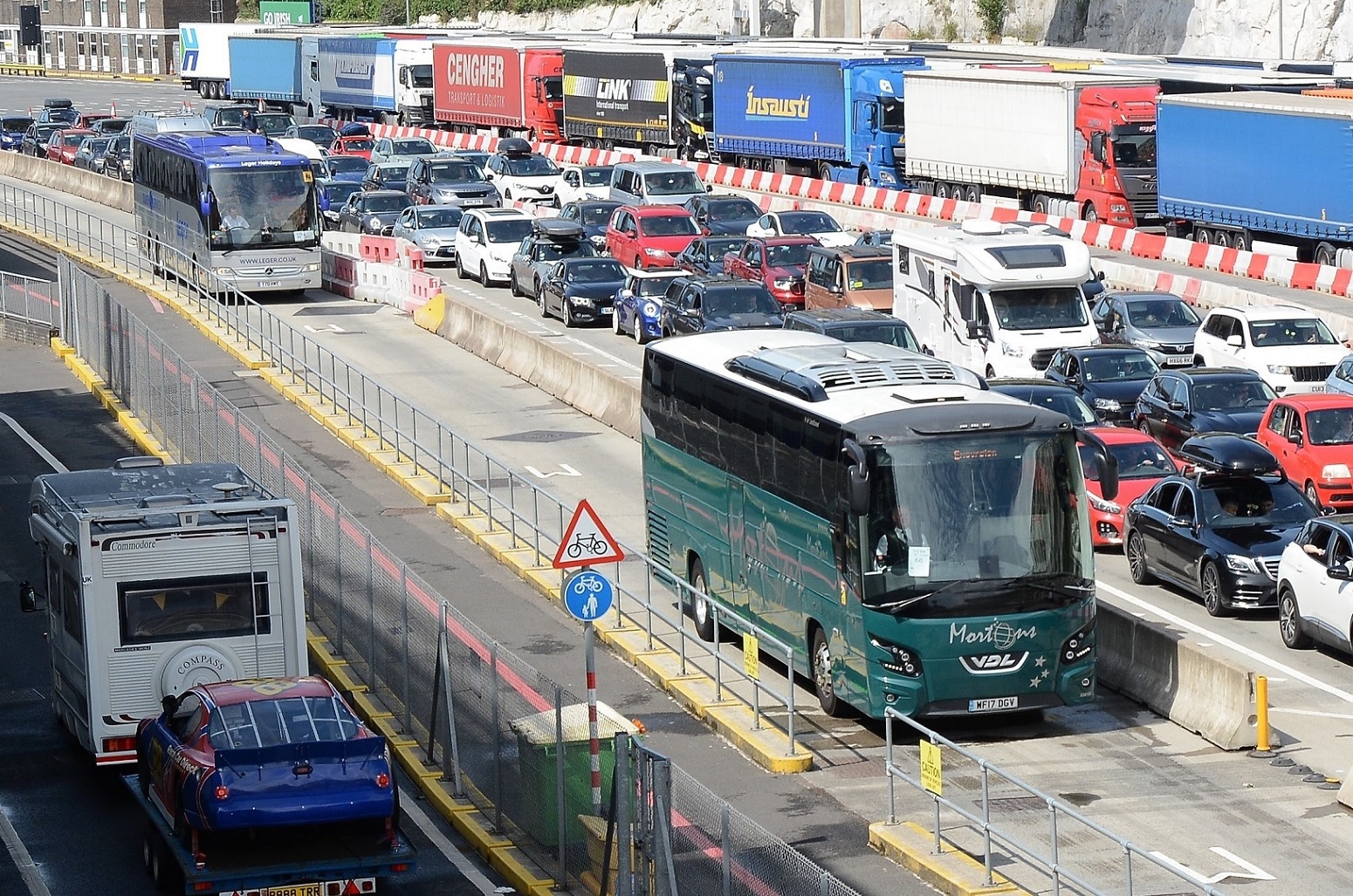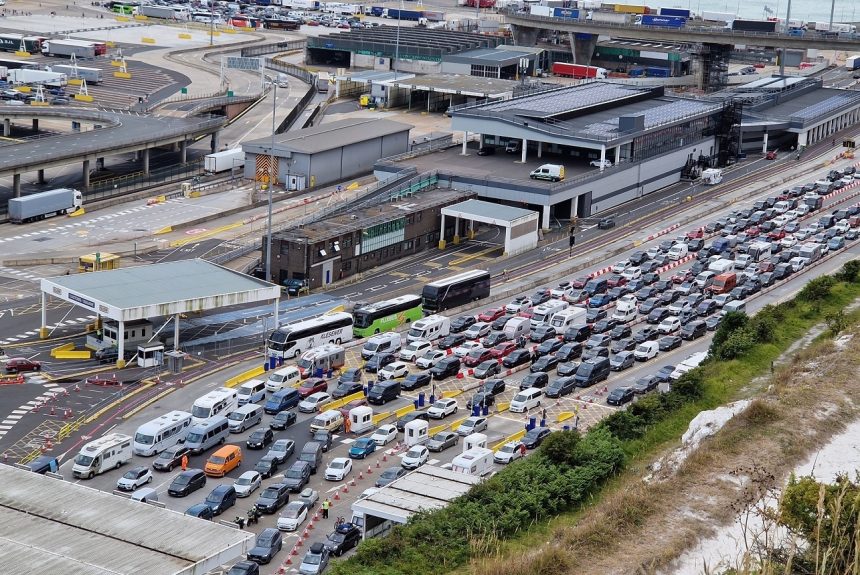Concern has grown that the EU Entry/Exit System (EES) for Schengen area countries will create difficulties for coach operators passing through the Port of Dover’s juxtaposed border controls if there is no change to the planned approach for its rollout.
Written evidence to the European Scrutiny Committee in late January articulated worries from multiple sources, with Acklams Coaches saying that it has “grave concerns about potential delays” at Dover caused by EES. The port itself has the same view.
Acklams adds that a difficult introduction of the system “could discourage tourism and negatively affect the entire coach industry.” The Port of Dover warns that “an approved, acceptable solution” to EES “eludes us,” noting that the system in its current form will bring “huge challenges” and “serious and lasting negative impacts” on border operations.
Entry/Exit System could overload Dover coach capacity
Dover adds that such a scenario will overload its capacity for tourism-related business. “The system would not be capable of processing current car and coach volumes, which are still lower than before (and recovering from) the pandemic,” it says.
In November 2023, the Committee heard worries from coach sector representatives around the Entry/Exit System, which is an automated means of registering entrants to the Schengen area from third countries that is expected to roll out in late 2024.
EES will collect biometric data from nationals of countries including the UK. The time taken to do so, particularly via the first use and periodic ‘registration’ exercise, is at the root of concerns.
Certain information must be captured at the Schengen frontier under the planned approach. Dover’s juxtaposed controls mean that scope for outgoing coaches to be delayed there is seen as a significant problem.
Delivery of EU app for passenger data collection vital, says CPT
Last year, ABTA and the Confederation of Passenger Transport (CPT) each called for some passenger data to be collected away from the border to speed processing upon crossing into Schengen.
CPT points out that the EU has mentioned an app to enable submission of some information before arrival at the frontier. It is imperative that the app is delivered ahead of EES’s introduction, and that it is adopted by France, the Confederation says.

Then and via its written evidence in January, CPT underlines the need for sufficient kiosks to be present at Dover to process coach passengers, although it cautions that space to install EES infrastructure within the port is “severely limited.”
Submissions in January question whether it will be possible to process coach passengers at the separate Eastern Docks in Dover. The Tourism Alliance suggests that there is “apparent reluctance on the part of the EU” to accept that, which it says would mitigate space constraints within the port.
CPT believes that if the task was carried out at Eastern Docks, coaches could be sealed before proceeding to board ferries. Eastern Docks would allow installation of the maximum number of kiosks to process passengers, it adds. Since January, it has been suggested that the EU is now warming to the idea of coach processing there.
Dover calls for Entry/Exit System dispensation for coach
The Port of Dover says that dispensation for EES processes to be conducted remotely is vital. In a glimmer of hope that agreement can be reached, it highlights a communication from the President of the European Council in October 2023 which “should provide a political vehicle by which a dispensation can be achieved.” The UK government must ask France to press the EU to support such a mechanism, Dover adds.
That European Council note states that rollout of EES “should be prepared [for] in detail, and measures that prevent border crossing points becoming congested will be required.” It adds that “reasonable waiting times” must be maintained at borders.” EES can only be introduced after all member states declare readiness.
Ashford Borough Council (ABC), while potentially exploring a worst-case scenario and not referencing coach passengers directly, also calls for remote initial registration for EES. It believes that such a process is justifiable while maintaining security for the UK and EU, and that it would benefit the overall passenger experience.
ABC warns that up to 14-hour wait times at Dover will be possible in extremis if mitigating factors are not agreed, and that there is scope for difficulties to be “much worse” than those seen during the early part of the 2023 overseas coach tourism season.

Acklams advocates streamlining of process for coach groups
Acklams suggests that streamlined processing of coach passengers at Dover should be considered. That could include dedicated lanes for those travellers or what Acklams calls “the preferred option” of pre-registration.
Travellers passing through Dover by coach will likely require assistance to use EES terminals, Acklams continues. The East Yorkshire operator also advocates simplified procedures for coach crew that regularly cross into Schengen.
Acklams and CPT look at ramifications for crew in their written submissions. CPT has called for “some flexibility” around the rule that in any 180-day period, citizens of countries including the UK may spend no more than 90 of those within the Schengen area without a visa.
The Confederation adds that the more stringent monitoring the 90/180 rule that EES will bring also poses difficulties. “Electronic recording of entry [and exit] will mean much less flexibility for both operators and their employees when deciding which to allocate to these duties,” it suggests.
Coach industry and stakeholder written evidence submitted to the European Scrutiny Committee here.











